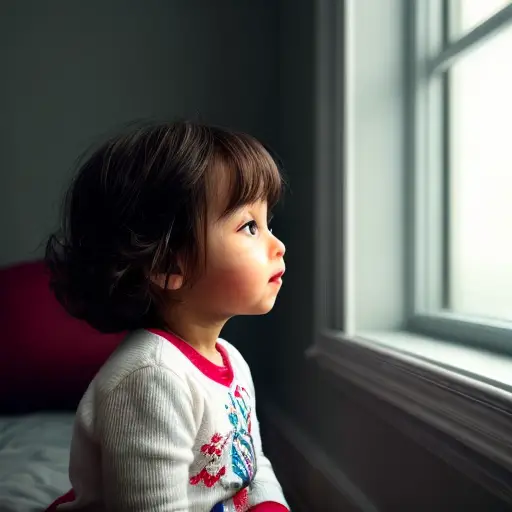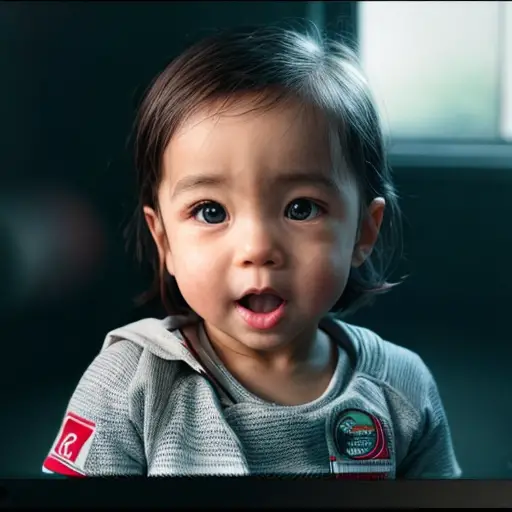The Digital Playground: Exploring the Impact of YouTube on Child Development
Picture this: a world where playgrounds are no longer filled with the sound of children's laughter and the clatter of swings, but instead, with the glow of screens and the incessant hum of YouTube videos. Yes, my friends, welcome to the digital playground, where the impact of YouTube on child development is as fascinating as it is perplexing. In this brave new world, children are not just learning their ABCs and 123s, but also the art of unboxing toys, perfecting dance moves, and even mastering the art of epic fails. YouTube has become their teacher, their entertainer, and their confidant, shaping their minds and molding their sense of humor. But amidst the endless cat videos and viral challenges, one must wonder: what will become of our future generations? Will they grow up to be YouTube sensations or simply experts at navigating the comment section? Only time will tell.
The Power of Visual Media: Understanding the Influence of YouTube on Cognitive Development
One interesting fact about how YouTube affects child development is that it has given rise to a new generation of young entrepreneurs and content creators. With the platform's accessibility and global reach, children as young as 6 or 7 years old have been able to create and upload their own videos, showcasing their talents, hobbies, or even just sharing their daily lives. This has not only fostered creativity and self-expression but has also provided them with valuable skills such as video editing, storytelling, and audience engagement. Additionally, these young YouTubers often learn about branding, marketing, and monetization, gaining a sense of responsibility and business acumen at an early age.
In a world where attention spans are shorter than a Vine video, YouTube has emerged as the ultimate visual playground, captivating young minds and shaping their cognitive development. With its vast array of educational content, from science experiments to historical documentaries, YouTube has become a virtual encyclopedia for curious young learners. But let's not forget the power of the dark side - the endless stream of mindless entertainment that can easily consume hours of a child's day. From catchy jingles to flashy animations, YouTube has the ability to captivate and mesmerize, but at what cost? As children navigate this digital maze, their cognitive abilities are both challenged and influenced, leaving us to ponder the long-term effects of this visual media revolution. Will they become critical thinkers or passive consumers? Only time will reveal the true impact of YouTube on the cognitive development of our future generations.
From Passive Spectators to Active Creators: YouTube's Role in Social and Emotional Development

In the age of YouTube, children are no longer just passive spectators of content, but active creators in their own right. This shift has had a profound impact on their social and emotional development. With a simple click of a button, children can become vloggers, sharing their thoughts, talents, and experiences with the world. This newfound ability to express themselves has not only boosted their self-confidence but also fostered a sense of belonging and connection within online communities. Through comments and collaborations, they learn the importance of empathy, respect, and constructive criticism, developing crucial social skills that will serve them well in the digital age.
However, the flip side of this newfound creative freedom is the potential for exposure to cyberbullying and negative online interactions. As children navigate the vast landscape of YouTube, they may encounter hurtful comments or face criticism that can impact their self-esteem and emotional well-being. It becomes crucial for parents and educators to guide them in understanding the difference between constructive feedback and harmful behavior, teaching them resilience and empathy in the face of online adversity.
Moreover, YouTube's influence on social and emotional development extends beyond the realm of content creation. The platform offers a plethora of educational and entertaining videos that can help children develop empathy, emotional intelligence, and a broader understanding of the world. From documentaries on different cultures to videos promoting kindness and inclusivity, YouTube has the power to shape children's perspectives and foster a sense of global citizenship. By exposing children to diverse voices and experiences, YouTube can play a vital role in nurturing their social awareness and empathy towards others.
In conclusion, YouTube has transformed children from passive spectators to active creators, profoundly impacting their social and emotional development. While it offers opportunities for self-expression, connection, and learning, it also presents challenges such as cyberbullying and negative online interactions. By guiding children in navigating this digital landscape and promoting positive content, parents and educators can harness the potential of YouTube to foster empathy, resilience, and a sense of global citizenship in the next generation.
Navigating the Digital Landscape: Parental Guidance and YouTube's Effect on Physical and Psychological Well-being
Fun fact: Did you know that watching YouTube videos can actually enhance a child's cognitive and creative development? Studies have shown that children who engage with educational content on YouTube tend to have improved problem-solving skills, critical thinking abilities, and enhanced creativity. So, next time you catch your child watching YouTube, remember that they might be learning and growing in unexpected ways!
In the vast digital landscape of YouTube, parental guidance becomes crucial in ensuring the physical and psychological well-being of children. With the endless stream of content available at their fingertips, children can easily fall into the trap of excessive screen time, leading to sedentary lifestyles and potential health issues. It is essential for parents to set boundaries and encourage a healthy balance between online and offline activities. Additionally, the influence of YouTube on children's psychological well-being cannot be overlooked. From the pressure to conform to societal beauty standards perpetuated by influencers to the constant comparison with others' seemingly perfect lives, YouTube can have a significant impact on children's self-esteem and mental health. Open communication, media literacy education, and monitoring of content can help parents navigate this digital landscape and ensure that YouTube becomes a positive and enriching experience for their children's overall well-being.

